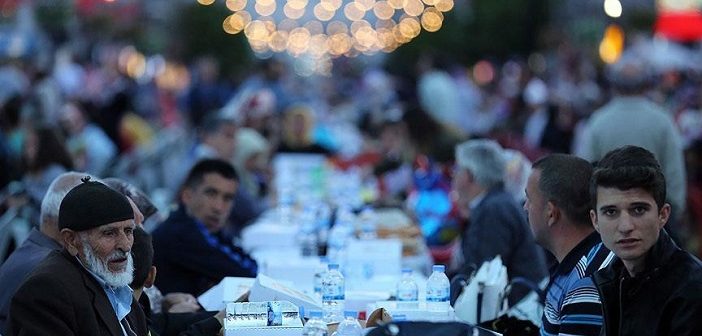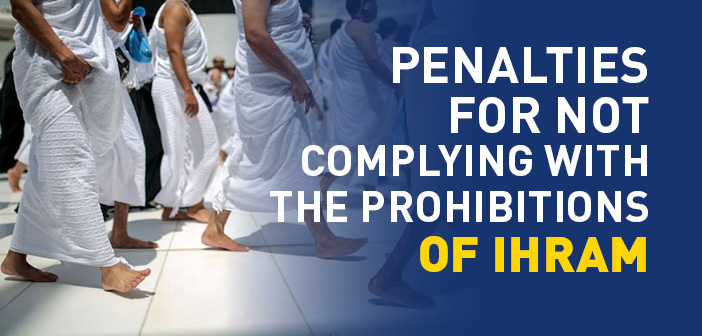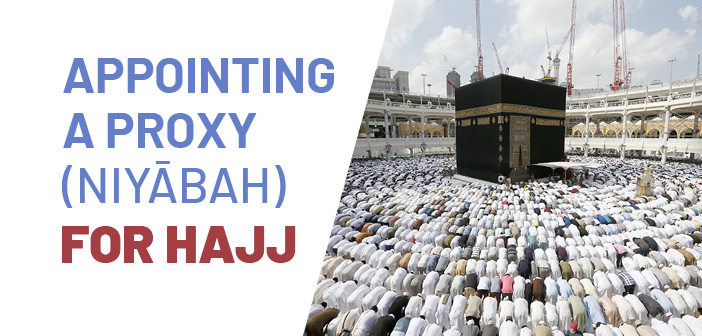
Types of Atonement (Kaffarah)
What is kaffarah in islam? What is kafara for breaking fast? What are types of atonemt? What are types of kaffarah? What are the three types of kaffarah?
Kaffārah (atonement) means the ways of redeeming in Islam done for the forgiveness of some sins committed by mistake, on purpose, or as a result of coercion. The general meaning of this term expresses the forgiveness for some sins due to good acts and deeds carried out. As a matter of fact, there is such an understanding of atonement in the verses such as “Indeed, good deeds do away with misdeeds.”[1], and “Except for those who repent, believe, and do righteous work. For them, Allah will replace their evil deeds with good.”[2] In like manner, the act of forgiving is declared as a kind of atonement in favor of the person who forgives the punishment of retaliation in killing and wounding.[3] Furthermore, many examples in this regard are given in the hadiths, besides the general declaration that “good deeds are atonement for sins.” Among these, five daily prayers and Friday prayers are atonement for (minor) sins committed in between,[4] fasting is considered atonement,[5] hadd punishments,[6] illnesses[7] , and calamities encountered are also accepted as an atonement for sins and mistakes.
Atonement is both a form of worship and a worldly punishment for believers who commit certain acts. There are five types of atonement in Islamic law.
Special types of atonement in the Qur’an and Sunnah
There are five types of special atonement, the amount and types of which are explained in the Qur’an and the Sunnah, and they are as follows: Atonement for Fasting, atonement for killing a believer by mistake, atonement for ẓihār, atonement for shaving while in iḥrām on pilgrimage, and atonement for breaking an oath.
A) Atonement for Fasting
A person who intentionally breaks the Ramadan fast that he has started without any valid excuse must make up for it as well as fast for two months of atonement. There is no direct mention of atonement for fasting in the Qur’an. However, the Prophet applied the same ruling for fasting by making an analogy with ẓihār (the process of making one’s wife unlawful by likening her to a close relative). It is stated in a hadith, “Whoever intentionally breaks his fast in the month of Ramadan, upon him is the ruling (atonement) required for the person who makes ẓihār.”[8], and the atonement for ẓihār is to free a slave, to fast for two consecutive months, or to feed sixty poor people. Since there is no slavery today, the worshipper will fulfill either fasting consecutively for two months or feeding sixty poor people respectively, depending on his or her conditions.
Allah Almighty says, “O you who believe! let not your [good] deeds come to naught!”[9]
If any fast other than Ramadan is broken intentionally, only making it up is required, no atonement is required. The atonement of fasting has been explained in its own section above.
B) Atonement of Breaking an Oath
Yamīn (oath) literally means power and strength. Its plural form is “aymān”. Yamīn as a legal term refers to the oath taken in the name of Allah to strengthen the word about doing or not doing something. For example, saying, “By God, I am going to do this or I am not going to do this”. The oath can be made specifically by using the name “Allah”, as well as by using another name of Allah such as “Raḥmān and Raḥīm”, or to one of the essential Divine attributes such as “His divine power and might”. No oath can be taken with the name of prophets, angels, or the Ka’ba or by life or death. Making something ḥalāl as something ḥarām is also considered an oath. For example, “If I do such and such, let that food be forbidden to me”. If a person swears by saying “If I do this, I will become a person of disbelief or a Jew or a Christian”: If he has done this with the awareness that he will leave the religion, he should repent and seek forgiveness, and if he is married, he should renew his marriage. If he said such a statement only with the intention of an abstract oath, atonement is required when his oath is broken.
The Qur’an states the following regarding the oaths,
“Allah will not call you to account for what is futile in your oaths, but He will call you to account for your deliberate oaths: for expiation, feed ten indigent persons, on a scale of the average for the food of your families; or clothe them; or give a slave his freedom. If that is beyond your means, fast for three days. That is the expiation for the oaths you have sworn. But keep to your oaths. Thus doth Allah make clear to you His signs, that ye may be grateful.”[10]
In this verse, the oath and its rulings are regulated. According to a narration from Aisha (r.anha), Abu Bakr (ra) would never break his oath until the Qur’anic verse stating the atonement of the oath was revealed. However, when the above verse was revealed, he started to prefer concessionary rule in this matter, seeking the benefit of the poor and deeming it better.”[11]
The oath is divided into three types:
a) Yamīn al-laghw: It is an oath that is made unintentionally, either by mistake or by thinking it is correct, or by habit. It is mentioned in the above verse that there is no responsibility for such an oath.
b) Yamīn al-ghamūs: It is an oath made deliberately on a false basis. Although a person has not paid his debt, he takes an oath in the court that he has paid and the oath made by a false witness is of this nature. Such an oath is one of the major sins, and according to the Ḥanafis, it requires repentance and forgiveness, but it does not require atonement. According to Imam Shafiʿi, atonement is also required for yamīn al-ghamūs.
c) Yamīn al-Munʿaqid oath: It is an oath made about something that is possible and may happen in the future. For example saying “By Allah, I will pay my debt tomorrow”. If one does not fulfill the requirement of that oath, atonement is required. This is the type of oath for which atonement is prescribed in the verse above. On the other hand, if an oath is taken to do something unlawful in Islam, such as “If I do not do this, I swear I will drink alcohol or I will not talk to my parents”, it becomes necessary to break the oath immediately and fulfill the atonement. For, the following is stated in the hadith, “If a person swears an oath then sees that something else is better than it, he should do that which is better and offer expiation for his oath.”[12]
The Atonement of Breaking an Oath
A person who breaks an oath that he has sworn must fulfill the appropriate one of the following atonement types respectively, according to his own social and economic situation.
a) Feeding ten poor people: The person who breaks his oath has to feed ten poor people (ibāḥa) in the morning and evening or give a food item or its price (tamlik) enough to feed them in the morning and evening, from the average of what his family is fed. According to Abu Ḥanīfa, the measure of this is the amount of zakāt al-fiṭr for each poor; half a ṣāʿ of wheat (l ṣāʿ equals 2.917 kg) and one ṣāʿ from the other zakāt al-fiṭr According to Imam Shafiʿi, it is one mudd (1 mudd equals 832 gr) of a food item.
b) Or to clothe ten poor people: To clothe ten poor people with a garment (kiswah) that can cover the body parts that must be covered according to Islam.
c) Or to free a slave.
d) Fasting for three days: A person who cannot afford one of the three above fasts for three consecutive days. The Ḥanafis adopted this view since the expression “mutatabiʿāt (in succession)” is found in Ibn Masʿūd’s recitation of the Qur’an. According to Imam Shafiʿi, this fast does not have to be one after the other.
The cloths to be given to the poor for the atonement of an oath must be in such a way as to cover all or most of the body. It is better if the cloth consists of two or three pieces. However, even if a cloth is short, it can be given in place of food.
The atonement must be fulfilled after the oath is broken. The Prophet said, “If a person swears an oath then sees that something else is better than it, he should do that which is better and offer expiation for his oath.”[13]
C) Atonement For Killing A Believer By Mistake
A person who accidentally kills a believer is obliged to pay blood money. In addition, atonement is also required, which is to free a believing slave and if he is unable to do so, to fast for two consecutive months. Allah Almighty says,
“Never should a believer kill a believer; but (If it so happens) by mistake, (compensation is due): If one (so) kills a believer, it is ordained that he should free a believing slave, and pay compensation to the deceased’s family, unless they remit it freely. If the deceased belonged to a people at war with you, and he was a believer, the freeing of a believing slave (Is enough). If he belonged to a people with whom you have treaty of mutual alliance, compensation should be paid to his family, and a believing slave be freed. For those who find this beyond their means, (is prescribed) a fast for two months consecutively: by way of repentance to Allah: for Allah has all knowledge and all wisdom.”[14]
This verse was revealed in Uhud after Hudhayfa (ra)’s father, who had converted to Islam before, was killed by mistake. The penalty for killing someone by error, for example, thinking that he was a game or an enemy, is a payment of blood money and freeing a believing slave. The amount of blood money, in the first period of Islam, was applied as either one hundred camels or about 4 kg of gold or 28 kg of silver. Certain relatives of the murderer, called āqila, pay this in equal installments within three years. State treasury undertakes the blood money of the person whose killer is unknown or who has no āqila. If one cannot afford to free a slave, it is necessary to fast for two consecutive months. This last one is an atonement for the removal of the sin of accidental killing that one will face in the hereafter.
In the 93rd verse of the chapter al-Nisa, it is stated that the one who kills someone deliberately “will stay in Hell forever”, and there is no mention of freeing a slave or atonement of two months of fasting. Therefore, according to the Ḥanafis, atonement is not required for deliberate killing. As a matter of fact, in another verse, it is stated, “And there is no sin upon you for that in which you have erred.”[15] Accordingly, since sin is removed from the one who makes a mistake, the one who kills is not burdened with sin. However, atonement is required for a sin that may arise due to negligence.
According to Imam Shafiʿi, those who kill intentionally must also be punished by atonement. Imam Shafiʿi compared deliberate killing to accidental killing, and based on the following evidence, “Verily the killing of them is a great sin.”[16] According to a narration from Wāila ibn al-Asqā, once a man who killed someone intentionally was brought to the Prophet, and he said (saw) about the man, “Free a slave for him, for each organ of this slave, Allah Almighty will free one of the killer’s organs from Hell.”[17]
D) Atonement For Zıhar
The word ẓihār is an infinitive from the root “ẓahr” meaning back, and it is a type of divorce expressed by a husband that he makes his wife ḥarām for himself by saying to her, “You are like my mother’s back to me, that is, you are forbidden to me like my mother.” According to this custom, which dates back to the period of ignorance, ḥarām used to become an occurrence, and the spouses could no longer return to each other. It was a kind of permanent separation. In the fourth or fifth year of the Medinan period in Islam, Khawla bint Malik’s husband, Aws Ibn Samit from the Anṣār, had started the process of “ẓihār” by saying to her, “You are like my mother’s back to me” while they argued. Claiming that her husband was old and poor, and her little girls would be devastated, Khawla asked the Prophet (saw) to find a solution. The Messenger of Allah informed her that he did not receive any revelation regarding this matter and that she should treat Aws, her uncle’s son, well. However, Khawla, who insisted on her request, also complained to Allah Almighty and demanded that this tradition of ignorance be abolished. Following this incident, the following four verses brought a new regulation to the issue of “ẓihār”.
“Allah has indeed heard (and accepted) the statement of the woman who pleads with thee concerning her husband and carries her complaint (in prayer) to Allah: and Allah (always) hears the arguments between both sides among you: for Allah hears and sees (all things).”
“If any men among you divorce their wives by ẓihār (calling them mothers), they cannot be their mothers: None can be their mothers except those who gave them birth. And in fact, they use words (both) iniquitous and false: but truly Allah is one that blots out (sins), and forgives (again and again).”
“But those who divorce their wives by ẓihār, then wish to go back on the words they uttered, (It is ordained that such a one) should free a slave before they touch each other: Thus are you admonished to perform: and Allah is well-acquainted with (all) that you do.”
“And if any has not (the wherewithal), he should fast for two months consecutively before they touch each other. But if any is unable to do so, he should feed sixty indigent ones, this, that you may show your faith in Allah and His Messenger. Those are limits (set by) Allah. For those who reject (Him), there is a grievous Penalty.”[18]
When these verses were revealed, the Prophet called Khawla bint Mālik and informed her that they would be able to make peace with her husband. However, when Khawla said that her husband would not be able to free a slave, nor fast for two months, nor feed sixty poor people, the Messenger of Allah gave him a measure of dates, and Khawla added another measure from herself, thus ended the ẓihār process by feeding sixty poor people.[19]
As understood from these verses, the penance of ẓihār is the same as the atonement of fasting. It is not permissible for a man who has resorted to ẓihār against his wife to have sexual intercourse with her unless he fulfills the atonement. The person who commits ẓihār has lied, and in fact, he is making something that is ḥalāl as ḥarām for himself.
If the husband who wants to stop the ẓihār process cannot find a slave to free, he fasts for two consecutive months. If he is not able to fast, he will feed sixty poor people. The order of the options must be observed.
If a man uses the phrase “you are like my mother to me or you are like my mother” to his wife, the following possibilities arise. If by this he meant the goodness of his wife, nothing is necessary. If he meant ẓihār, the provisions of ẓihār are applied. If he meant divorce, according to Ḥanafis, a bain talaq occurs. If he did not have any intention at all, a ruling does not come into existence with just saying these words.[20]
E) Atonement of Shaving While In The State of Ihram in Hajj
The rules that a person who enters the state of iḥrām for hajj must follow are determined by Qur’anic verses and hadiths. Not to shave as long as the person is in the state of iḥrām is also among these rules.
If a person in the state of iḥrām shaves a quarter or more of his head or a quarter of his beard, the punishment of offering a sacrifice is required. If he shaves less than a quarter, he gives alms. This consists of giving half a ṣāʿ of wheat or its price to a poor person.
If a person in iḥrām has his hair shaved before its due time due to a valid excuse, he fasts for three days as atonement. This fast does not have to be consecutive.[21]
The provisions regarding this atonement are explained in the following Qur’anic verse:
“And complete the Hajj or ‘Umra in the service of Allah. But if ye are prevented (From completing it), send an offering for sacrifice, such as ye may find and do not shave your heads until the offering reaches the place of sacrifice. And if any of you is ill, or has an ailment in his scalp, (necessitating shaving), (He should) in compensation either fast, or feed the poor, or offer sacrifice…”[22]
[1] Hūd, 11: 114.[2] Al-Furqān, 25: 70.[3] See al-Mā’ida, 5: 45.[4] See al-Bukhari, Ṭaḥāra, 14, 15, Mawāqīṭ, 4, 6; al-Tirmidhī, Mawāqīṭ, 46; Abū Dawūd, Ṣalāh, 229.[5] Al-Bukhari, Ṣawm, 3.[6] Al-Tirmidhī, Ḥudūd, 12; Ibn Maja, Ḥudūd, 33.[7] Al-Tirmidhī, Ḥajj, 111.[8] Ibn al-Humām, Fatḥ, II, 70: For the subject of ẓiḥar see al-Mujadala, 58: 1-4.[9] Muḥammad, 47: 33.[10] Al-Mā’ida, 5: 89; See al-Baqara, 2: 225; al-Naḥl, 16: 91.[11] Al-Bukhari, Tafsīr, 5/8.[12] Muslim, Aymān, 15, 16; al-Bukhari, Aymān, 1.[13] Muslim, Aymān, 15,16; al-Bukhari, Aymān, 1.[14] Al-Nisā, 4: 92.[15] Al-Aḥzāb, 33: 5.[16] Al-’Isrā, 17: 31.[17] Aḥmad ibn Ḥanbal, IV, 447; al-Sarakhsī, Mabsūt, XXVII, 85.[18] Al-Mujadala, 58: 1-4.[19] See Abū Dawūd, Ṭalāq, 17; Aḥmad ibn Ḥanbal, VI, 411; al-Shawkanī, Nayl, VI, 262; Hamdi Döndüren, Delilleriyle Aile İlmihali, Istanbul 1995, p. 442-445.[20] Al-Mawṣilī ibid, III, 162, 163.[21] For details see the subject of Ḥajj.[22] Al-Baqara, 2: 196.
Source: Basic Islamic Principles (ilmiḥal) According to the Four Sunni Schools With Evidence From The Sources of Islamic Law, Prof. Hamdi Döndüren, Erkam Publications











